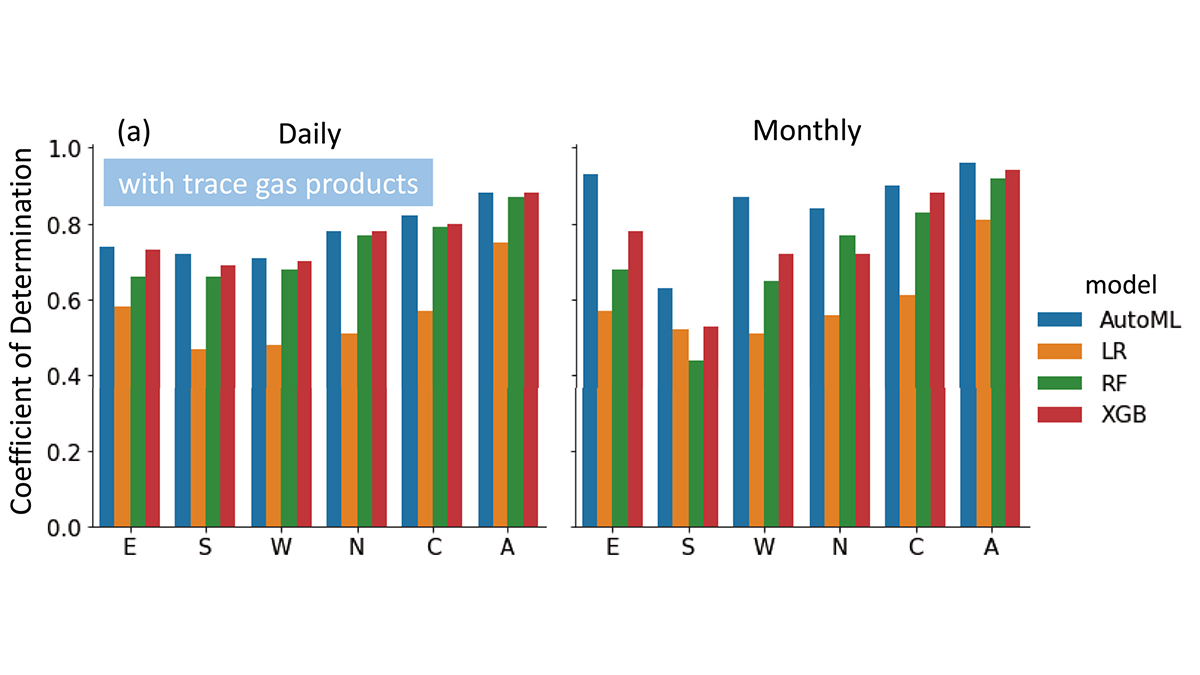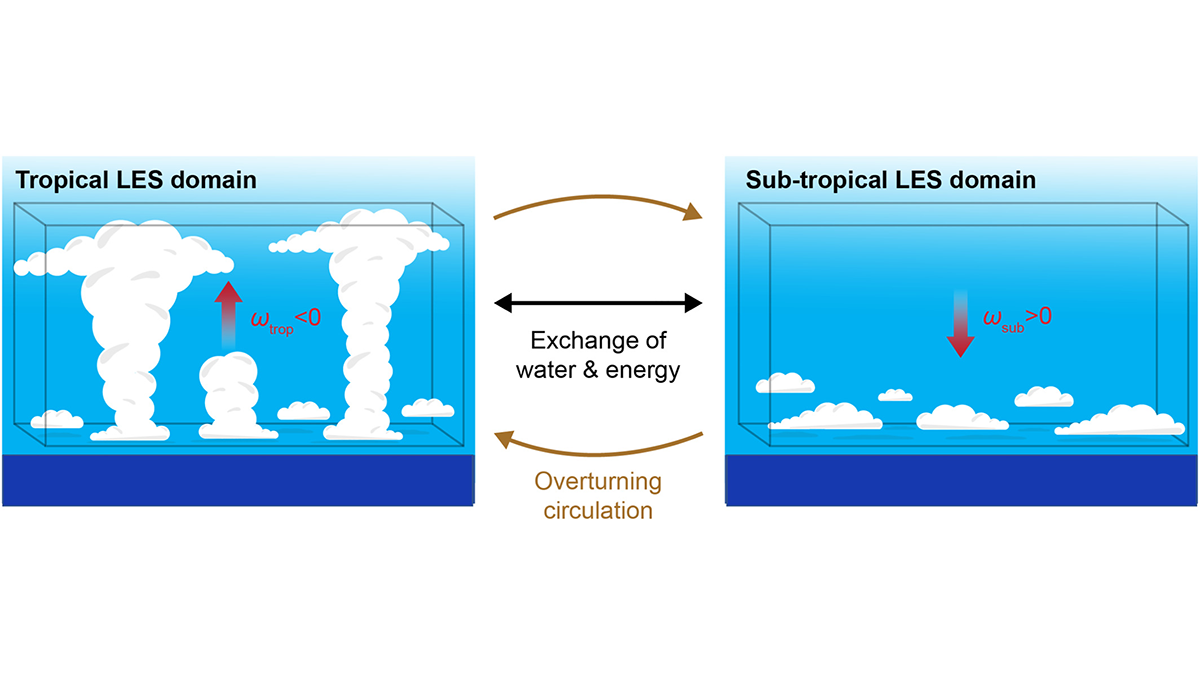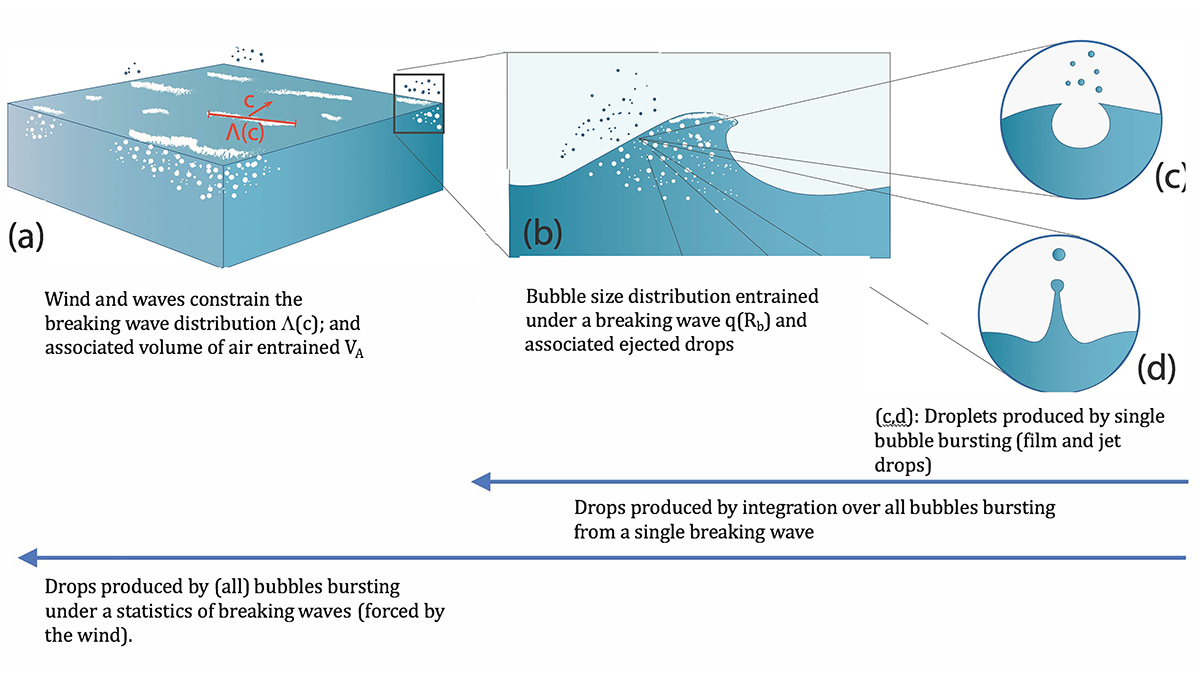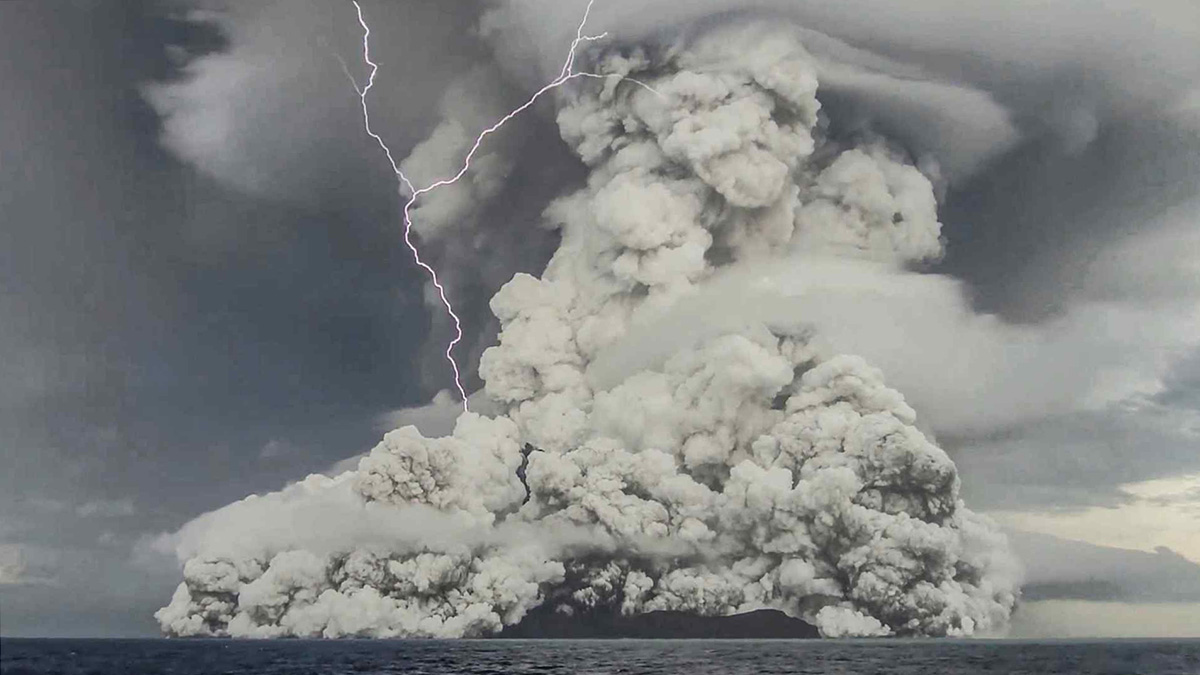Smoke aerosols from large wildfires are the perfect reaction surface for chlorine chemicals, speeding their transformation from ozone-friendly forms to reactive ones.
aerosols & particles
Taking Cloud Microphysics Experiments to the Next Level
Experiments in a cloud chamber have provided valuable insights into microphysical processes and will get more realistic as the height of the chamber increases.
Spring and Sewage Are in the Air Near San Diego
Sea spray can transport sewage-contaminated waters inland, potentially exposing those living kilometers from the beach.
Unleashing the Power of AutoML for Atmospheric Research
Automated Machine Learning liberates domain scientists from selecting learners and hyperparameters and discovers the importance of atmospheric trace gases for improving surface PM2.5 estimates.
Examining Aerosol-Cloud-Climate Interactions at a Large Scale
A new numerical setup demonstrates that aerosols could affect clouds, and hence the radiation budget, thousands of kilometers from their location.
A New Approach to Sea Spray Aerosol Production and Prediction
Sea spray aerosols play a critical role in atmospheric processes. A new approach is in strong agreement with observations, paving the way for improved models of atmospheric aerosols of oceanic origin.
When the Aral Sea Dried Up, Central Asia Became Dustier
Winds kick up large amounts of dust from the desert that has formed as the world’s fourth largest lake has disappeared, spreading it around the region and raising concerns about public health.
Bacteria Travel Thousands of Kilometers on Airborne Dust
As winds pick up dirt and sand, they also pick up any microbes adhering to those particles, potentially introducing them to new locations.
Monitoreando el agua en la columna eruptiva masiva del volcán de Tonga
La reciente erupción del volcán Hunga Tonga-Hunga Ha’apai arrojó aerosoles de sulfatos y una cantidad nunca antes vista de vapor de agua a la estratosfera.










